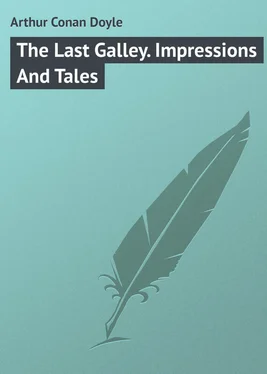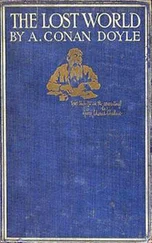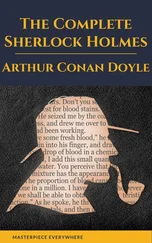Arthur Conan Doyle - The Last Galley. Impressions And Tales
Здесь есть возможность читать онлайн «Arthur Conan Doyle - The Last Galley. Impressions And Tales» — ознакомительный отрывок электронной книги совершенно бесплатно, а после прочтения отрывка купить полную версию. В некоторых случаях можно слушать аудио, скачать через торрент в формате fb2 и присутствует краткое содержание. Жанр: foreign_prose, на английском языке. Описание произведения, (предисловие) а так же отзывы посетителей доступны на портале библиотеки ЛибКат.
- Название:The Last Galley. Impressions And Tales
- Автор:
- Жанр:
- Год:неизвестен
- ISBN:нет данных
- Рейтинг книги:3 / 5. Голосов: 1
-
Избранное:Добавить в избранное
- Отзывы:
-
Ваша оценка:
- 60
- 1
- 2
- 3
- 4
- 5
The Last Galley. Impressions And Tales: краткое содержание, описание и аннотация
Предлагаем к чтению аннотацию, описание, краткое содержание или предисловие (зависит от того, что написал сам автор книги «The Last Galley. Impressions And Tales»). Если вы не нашли необходимую информацию о книге — напишите в комментариях, мы постараемся отыскать её.
The Last Galley. Impressions And Tales — читать онлайн ознакомительный отрывок
Ниже представлен текст книги, разбитый по страницам. Система сохранения места последней прочитанной страницы, позволяет с удобством читать онлайн бесплатно книгу «The Last Galley. Impressions And Tales», без необходимости каждый раз заново искать на чём Вы остановились. Поставьте закладку, и сможете в любой момент перейти на страницу, на которой закончили чтение.
Интервал:
Закладка:
The blue-clad player struck several chords upon his lyre, and then burst suddenly out into the "Ode of Niobe." Policles sat straight up on his bench and gazed at the stage in amazement. The tune demanded a rapid transition from a low note to a high, and had been purposely chosen for this reason. The low note was a grunting, a rumble, the deep discordant growling of an ill-conditioned dog. Then suddenly the singer threw up his face, straightened his tubby figure, rose upon his tiptoes, and with wagging head and scarlet cheeks emitted such a howl as the same dog might have given had his growl been checked by a kick from his master. All the while the lyre twanged and thrummed, sometimes in front of and sometimes behind the voice of the singer. But what amazed Policles most of all was the effect of this performance upon the audience. Every Greek was a trained critic, and as unsparing in his hisses as he was lavish in his applause. Many a singer far better than this absurd fop had been driven amid execration and abuse from the platform. But now, as the man stopped and wiped the abundant sweat from his fat face, the whole assembly burst into a delirium of appreciation. The shepherd held his hands to his bursting head, and felt that his reason must be leaving him. It was surely a dreadful musical nightmare, and he would wake soon and laugh at the remembrance. But no; the figures were real, the faces were those of his neighbours, the cheers which resounded in his ears were indeed from an audience which filled the theatre of Olympia. The whole chorus was in full blast, the hummers humming, the shouters bellowing, the tappers hard at work upon the benches, while every now and then came a musical cyclone of "Incomparable! Divine!" from the trained phalanx who intoned their applause, their united voices sweeping over the tumult as the drone of the wind dominates the roar of the sea. It was madness – insufferable madness! If this were allowed to pass, there was an end of all musical justice in Greece. Policles' conscience would not permit him to be still. Standing upon his bench with waving hands and upraised voice, he protested with all the strength of his lungs against the mad judgment of the audience.
At first, amid the tumult, his action was hardly noticed. His voice was drowned in the universal roar which broke out afresh at each bow and smirk from the fatuous musician. But gradually the folk round Policles ceased clapping, and stared at him in astonishment. The silence grew in ever widening circles, until the whole great assembly sat mute, staring at this wild and magnificent creature who was storming at them from his perch near the door.
"Fools!" he cried. "What are you clapping at? What are you cheering? Is this what you call music? Is this cat-calling to earn an Olympian prize? The fellow has not a note in his voice. You are either deaf or mad, and I for one cry shame upon you for your folly."
Soldiers ran to pull him down, and the whole audience was in confusion, some of the bolder cheering the sentiments of the shepherd, and others crying that he should be cast out of the building. Meanwhile the successful singer having handed his lyre to his negro attendant, was inquiring from those around him on the stage as to the cause of the uproar. Finally a herald with an enormously powerful voice stepped forward to the front and proclaimed that if the foolish person at the back of the hall, who appeared to differ from the opinion of the rest of the audience, would come forward upon the platform, he might, if he dared, exhibit his own powers, and see if he could outdo the admirable and wonderful exhibition which they had just had the privilege of hearing.
Policles sprang readily to his feet at the challenge, and the great company making way for him to pass, he found himself a minute later standing in his unkempt garb, with his frayed and weather-beaten harp in his hand, before the expectant crowd. He stood for a moment tightening a string here and slackening another there until his chords rang true. Then, amid a murmur of laughter and jeers from the Roman benches immediately before him, he began to sing.
He had prepared no composition, but he had trained himself to improvise, singing out of his heart for the joy of the music. He told of the land of Elis, beloved of Jupiter, in which they were gathered that day, of the great bare mountain slopes, of the swift shadows of the clouds, of the winding blue river, of the keen air of the uplands, of the chill of the evenings, and the beauties of earth and sky. It was all simple and childlike, but it went to the hearts of the Olympians, for it spoke of the land which they knew and loved. Yet when he at last dropped his hand, few of them dared to applaud, and their feeble voices were drowned by a storm of hisses and groans from his opponents. He shrank back in horror from so unusual a reception, and in an instant his blue-clad rival was in his place. If he had sung badly before, his performance now was inconceivable. His screams, his grunts, his discords, and harsh jarring cacophanies were an outrage to the very name of music. And yet every time that he paused for breath or to wipe his streaming forehead a fresh thunder of applause came rolling back from the audience. Policles sank his face in his hands and prayed that he might not be insane. Then, when the dreadful performance ceased, and the uproar of admiration showed that the crown was certainly awarded to this impostor, a horror of the audience, a hatred of this race of fools, and a craving for the peace and silence of the pastures mastered every feeling in his mind. He dashed through the mass of people waiting at the wings, and emerged in the open air. His old rival and friend Metas of Corinth was waiting there with an anxious face.
"Quick, Policles, quick!" he cried. "My pony is tethered behind yonder grove. A grey he is, with red trappings. Get you gone as hard as hoof will bear you, for if you are taken you will have no easy death."
"No easy death! What mean you, Metas? Who is the fellow?"
"Great Jupiter! did you not know? Where have you lived? It is Nero the Emperor! Never would he pardon what you have said about his voice. Quick, man, quick, or the guards will be at your heels!"
An hour later the shepherd was well on his way to his mountain home, and about the same time the Emperor, having received the Chaplet of Olympia for the incomparable excellence of his performance, was making inquiries with a frowning brow as to who the insolent person might be who had dared to utter such contemptuous criticisms.
"Bring him to me here this instant," said he, "and let Marcus with his knife and branding-iron be in attendance."
"If it please you, great Caesar," said Arsenius Platus, the officer of attendance, "the man cannot be found, and there are some very strange rumours flying about."
"Rumours!" cried the angry Nero. "What do you mean, Arsenius? I tell you that the fellow was an ignorant upstart, with the bearing of a boor and the voice of a peacock. I tell you also that there are a good many who are as guilty as he among the people, for I heard them with my own ears raise cheers for him when he had sung his ridiculous ode. I have half a mind to burn their town about their ears so that they may remember my visit."
"It is not to be wondered at if he won their votes, Caesar," said the soldier, "for from what I hear it would have been no disgrace had you, even you, been conquered in this conquest."
"I conquered! You are mad, Arsenius. What do you mean?"
"None know him, great Caesar! He came from the mountains, and he disappeared into the mountains. You marked the wildness and strange beauty of his face. It is whispered that for once the great god Pan has condescended to measure himself against a mortal."
The cloud cleared from Nero's brow. "Of course, Arsenius! You are right! No man would have dared to brave me so. What a story for Rome! Let the messenger leave this very night, Arsenius, to tell them how their Emperor has upheld their honour in Olympia this day."
Читать дальшеИнтервал:
Закладка:
Похожие книги на «The Last Galley. Impressions And Tales»
Представляем Вашему вниманию похожие книги на «The Last Galley. Impressions And Tales» списком для выбора. Мы отобрали схожую по названию и смыслу литературу в надежде предоставить читателям больше вариантов отыскать новые, интересные, ещё непрочитанные произведения.
Обсуждение, отзывы о книге «The Last Galley. Impressions And Tales» и просто собственные мнения читателей. Оставьте ваши комментарии, напишите, что Вы думаете о произведении, его смысле или главных героях. Укажите что конкретно понравилось, а что нет, и почему Вы так считаете.












